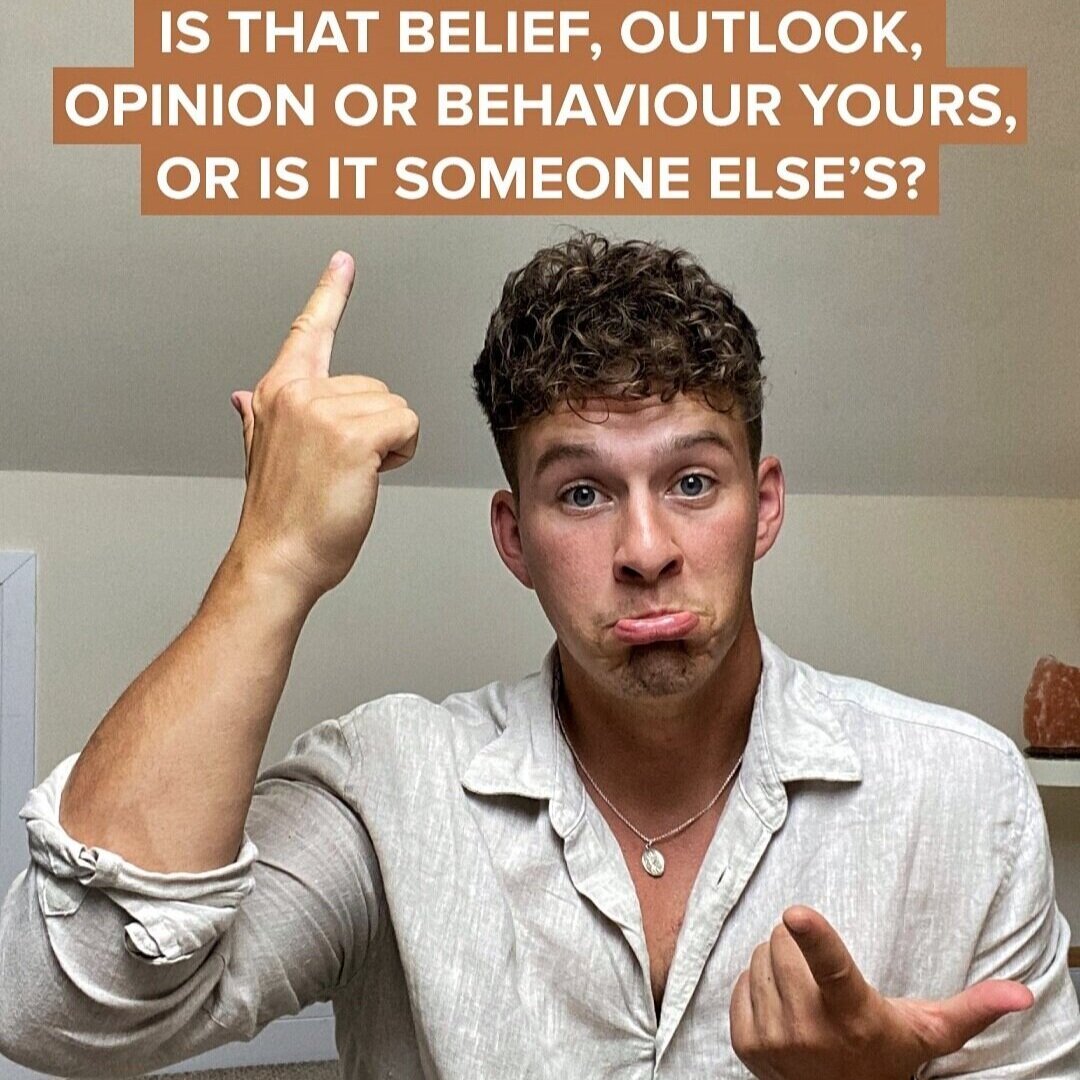Understanding Introjected Values, beliefs & Behaviours.
In this post I’d love to briefly talk to you about Introjected (or adopted) narratives, and the importance of questioning whether a belief, outlook, opinion or behaviour feels authentically our own, and to question whether it may be ‘inherited’ and/or outdated.
It is highly likely that some of the values, beliefs, outlooks, opinions or behavioural traits that you have are in fact introjected, and if left unchecked, will be playing out in our daily lives - for good or for bad.
Introjected narratives are beliefs / outlooks / opinions that we may have subconsciously learnt from primary caregivers or figures of authority throughout our lives.
While these may serve us for periods of our lives, it is important to check in and question whether these outlooks, opinion or beliefs are relevant for us today as independent adults.
Often, when I speak to clients and they’ve reached a realisation that something they had thought would be right for them, in fact wasn’t, I raise questions to challenge their opinion, outlook, and reasoning. Often the discovery is that the decision to act was aligned to a value system, belief or narrative that used to be relevant for them, or on closer examination that the decision was based on reasoning learnt from others.
Here are some examples of potential introjected narratives:
“Getting a stable 9-5 is what is most sensible. If you want to have a family, you should be able to provide a stable home life - a 9-5 is the best way to do that.”
“You should be married with kid’s by 30 LATEST - people will think something is wrong with you.”
“Life is hard graft - don’t expect anything to come easy. You’ll have to constantly work hard for it.”
“Life is unfair - it’s always been that way for our family.”
“Money can be very hard to come by - don’t squander it on unnecessary treats and luxuries.”
“That isn’t how to behave in this situation.”
Take a moment to consider how this could impact your world view, your decision making, your behaviour, your opinion, your beliefs etc. If you learn a specific narrative / belief / behaviour / outlook at an age when you were vulnerable or impressionable, it is unlikely that it would have been questioned or challenged at the time.
Of course, I’m sure we were all taught this information with the best intentions at heart. However, as adults, we have the option to start challenging and questioning whether or not the beliefs, values, opinions etc that we have learnt are our own. Also, whether or not they align to our current values, and whether or not they are relevant or serving the people we are today.
So what can we do about it?
Here are a few pointers and questions to offer some further insight
Start to explore various Life Domains one at a time [some example life domains: Intimate relationships, Friends and social life, Physical and mental health and self-care, Spirituality, Work and Career]. You can begin by writing out what your thoughts, feelings, opinions, outlooks etc are for each of of them, and then ask yourself the following questions about each of them:
Is this true for me now?
Is this my personal outlook / value / belief, or is this something that I’ve taken on?
Do I still believe this to be completely true now?
What are the potential consequences of continuing to believe this moving forward?
What is a more fitting narrative / outlook / opinion / belief for me now?
Start to explore what your values are now present day. This is something that we should regularly check in on, as our values will shift and change through different periods of our lives. Then ask yourself these questions:
Do I act from this set of values now, or do I act based on old values?
Which values that I’m utilising no longer feel fitting?
Which new values do I wish to utilise more regularly?
Start to act according to the value system and a belief system that feels fitting an authentic for you now, present day in small and achievable ways.
Continue to question and challenge any narratives, beliefs or outlooks that no longer feel fitting for who you are today as and when they arise.
Of course, this will take time, patience and repetition - but in time, you’ll start to experience more and more clarity with this proess.
I hope you found this useful!
DCM.

